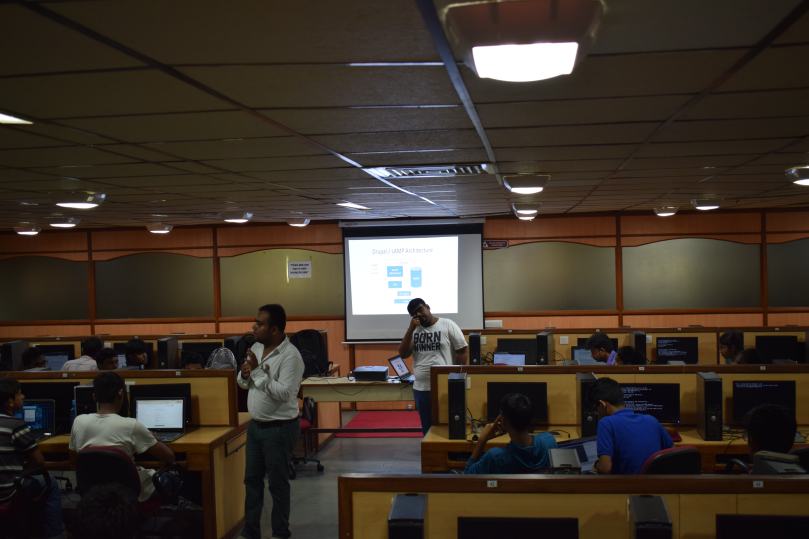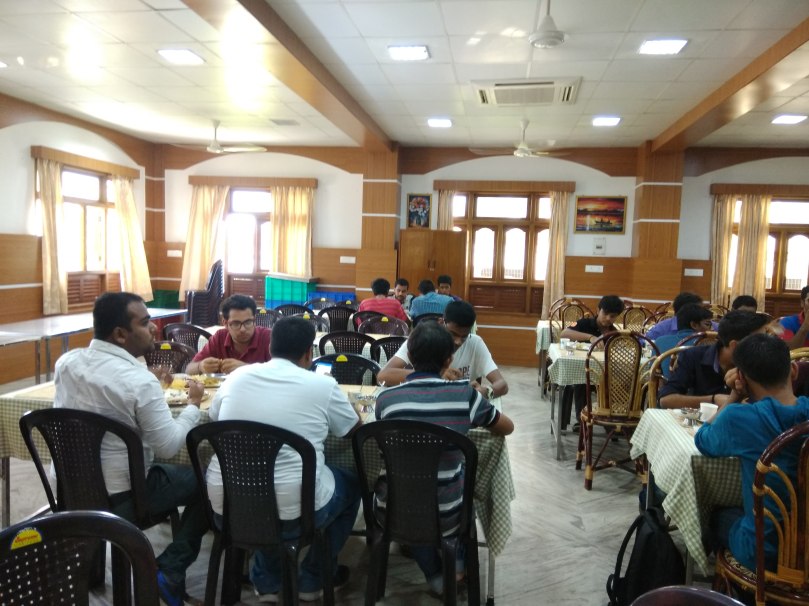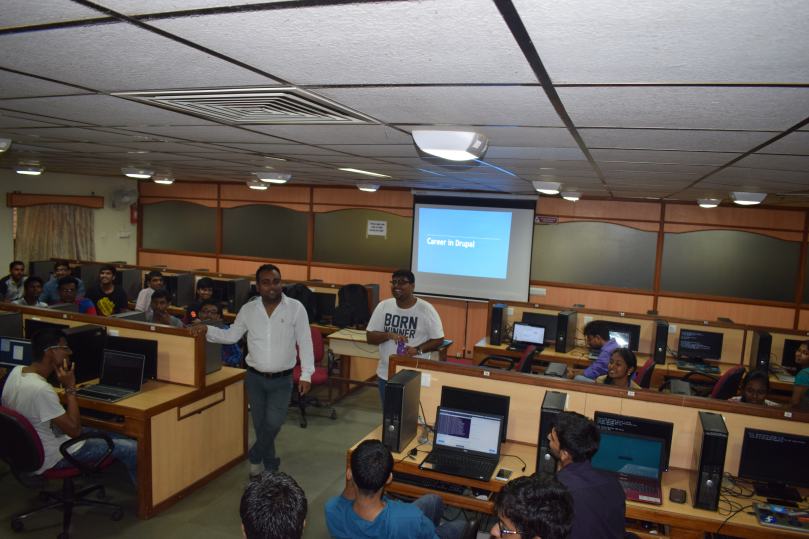It was a dream for me to conduct an event in my campus before I graduate (I guess all want something like that in their college life). It all began in late December 2016 where a group of 5 of us(Abhishek, Akash, Chiranjeeb, Prashant and myself) started thinking of a Drupal hackathon- Drupalathon’ 17 in our campus in connection with FOSS@Amrita, to help students get an overview of this powerful Content Management System(CMS) used by many exciting projects including The white house, Harward university, Grammy awards and so on.
We started contacting Drupal communities in and around India for sponsorships. The initial responses weren’t that great. At the same time, we got replies from Jet Brains and GitHub. We assumed it to be sponsorships as funding for the conduct of the event. But, they could only provide the stickers which we could distribute among the participants. Thanks to both these communities.
Months passed, we kept on contacting the local communities, not many responses and in March we could find an exciting update from the Drupal association itself who were ready to share our funding in the form of Community Cultivation Grant(CCG).
At the same time, we were also in talks with the local Drupalers in Bangalore and Trivandrum to find potential speakers who could lead the event. We finally ended up in Rakesh James from Valuebound whom I have met during DrupalCon Asia 2016 in Mumbai. The dates were initially set to March 25 but later on got shifted to April 22nd due to some permission delays.
But, at the last moment, Rakesh had to go to Baltimore to attend the Drupalcon which again brought new issues for us. We were feeling really down that we will lose all of our efforts if we couldn’t implement the plans effectively. To our good luck, Rakesh sorted out the issue by helping us get in touch with Nishant Kumar from his company. That was a huge relaxation for all of us from all the sudden happenings. He also got Chirag Shah, his colleague to help him for the event.
Again when it was nearing the event, April 22nd was declared as a working day, making us more difficult for the event to occur due to the unavailability of the computer labs, duty leave permissions. We discussed with the speakers and they were kind enough to shift the event to the next day, Sunday, April 23rd.
We had 40 attendees for the event. It got started by 9:3 with Nishant Kumar introducing the participants to an overview of the Drupal ecosystem, its usability, how it stands apart from the current existing technologies. It was a totally interactive one with students raising their questions and clearing their doubts on the various aspects of this technology.

Then Chirag joined Nishant with the installation of Drupal in the local systems. Most of them could install successfully by the lunch time. All were really enjoying the environment learning new things which could come into their real use may be once they start applying it.
 The afternoon session mainly dealt with customizing the website and exploring the various cutting-edge features of this enormous CMS. Students also tried to work out some of them to enjoy the real beauty.
The afternoon session mainly dealt with customizing the website and exploring the various cutting-edge features of this enormous CMS. Students also tried to work out some of them to enjoy the real beauty.
 And it was really a happy ending for all of us. We got positive feedbacks from the participants and the speakers. We feel really proud to have conducted the event, breaking all the barriers and ending up a day, sharing the Drupal knowledge with the students of my campus. Thanks to FOSS@Amrita for all the support and encourage throughout entire planning and implementation phase of the hackathon.
And it was really a happy ending for all of us. We got positive feedbacks from the participants and the speakers. We feel really proud to have conducted the event, breaking all the barriers and ending up a day, sharing the Drupal knowledge with the students of my campus. Thanks to FOSS@Amrita for all the support and encourage throughout entire planning and implementation phase of the hackathon.
Hope we could come up with more events in the future.
